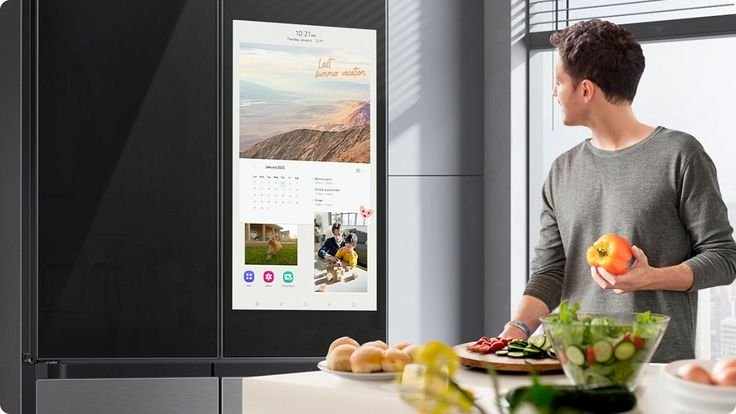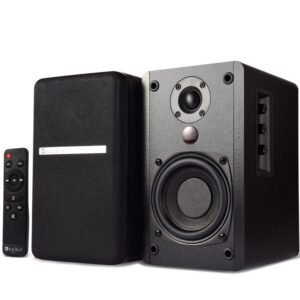How Smart Refrigerators are Changing the Way We Eat in 2024
Introduction
The kitchen has long been the heart of the home, and with the rise of smart technology, it’s becoming a hub for digital innovation as well. One of the standout advancements in recent years is the development of smart refrigerators—appliances that go beyond keeping food cold. Smart refrigerators in 2024 are equipped with cutting-edge technology, helping us shop smarter, waste less food, and enjoy a more efficient, connected kitchen experience.
In this blog, we’ll explore how smart refrigerators are reshaping the way we eat, manage our groceries, and interact with our kitchens, and we’ll dive into some of the innovative features making this possible.
Table of Contents
Key Features of Smart Refrigerators in 2024
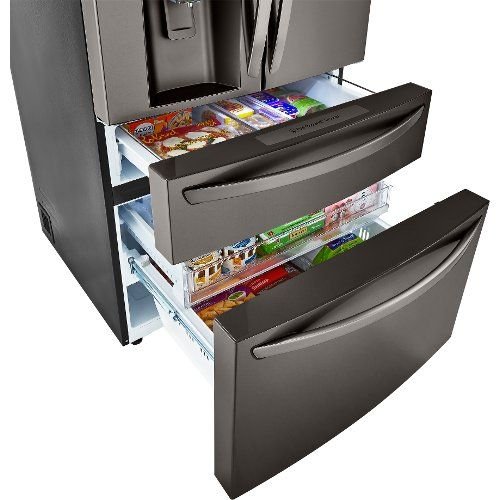
- Built-In Inventory Management
Gone are the days of reaching for expired products in the back of the fridge. Today’s smart refrigerators come with built-in cameras and inventory management systems that track what’s inside. Some models allow users to set expiry dates for perishable items and receive alerts when food is nearing its end. Others use AI to automatically recognize certain foods and keep track of them. This feature is a game-changer for meal planning and helps reduce food waste—a big win for both our wallets and the environment. - Automated Shopping Lists and Online Ordering
In 2024, many smart refrigerators are integrated with shopping list apps and online grocery delivery services. If you’re running low on milk or eggs, the fridge can add these items to a shared digital shopping list. Some models even connect directly to grocery apps, allowing users to reorder items with just a tap on the fridge’s touchscreen or through a voice command. This convenience not only saves time but also makes it easier to stick to a shopping plan, helping households avoid impulse purchases. - Recipe Recommendations and Meal Planning
Smart refrigerators can now suggest recipes based on the ingredients you have on hand. For example, if you have leftover vegetables and a few ingredients nearing their expiration date, the fridge’s AI can suggest meals that use those items. Some models even allow users to set dietary preferences, so recipe recommendations align with nutritional goals or dietary restrictions. This feature is perfect for busy individuals and families looking to eat healthier and reduce food waste. - Remote Monitoring and Control
Many smart refrigerators can be monitored and controlled remotely through smartphone apps. This means you can check your fridge’s contents from the grocery store, adjust the temperature, or even activate holiday mode if you’re going to be away for an extended period. Remote access allows for more flexibility in managing food storage and can prevent issues like leaving the fridge door open, which could lead to spoiled food and wasted energy. - Enhanced Energy Efficiency
Energy efficiency is a priority for most smart appliances, and refrigerators are no exception. Many smart refrigerators in 2024 come with energy-saving modes, smart sensors, and adaptive defrosting, all aimed at reducing energy consumption. By optimizing cooling cycles and adjusting temperatures based on usage patterns, these refrigerators help lower household energy bills and reduce environmental impact. Some even offer insights into energy usage, so users can track and optimize their appliance’s performance.
How Smart Refrigerators Are Changing Our Eating Habits
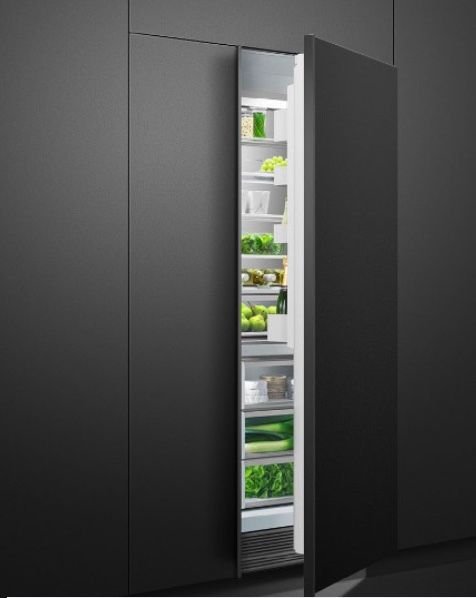
The advanced features of smart refrigerators are having a noticeable impact on how we approach food. Here are some of the ways these appliances are influencing our eating habits:
- Less Food Waste: With built-in inventory tracking, automated shopping lists, and expiration notifications, households can reduce food spoilage and waste. By providing visibility into what’s in the fridge at all times, smart refrigerators encourage users to plan meals around existing ingredients, leading to more conscious food consumption.
- Healthier Meal Choices: Recipe suggestions based on available ingredients make it easier to cook balanced meals at home rather than opting for takeout. The recipe recommendation feature can even encourage users to try new foods, creating variety in their diet and making it easier to meet nutritional goals.
- More Efficient Grocery Shopping: The ability to see the contents of your fridge remotely and receive low-stock notifications helps with efficient grocery shopping. By shopping only for what’s needed, households save money and reduce the likelihood of buying unnecessary items.
Emerging Trends in Smart Refrigerators
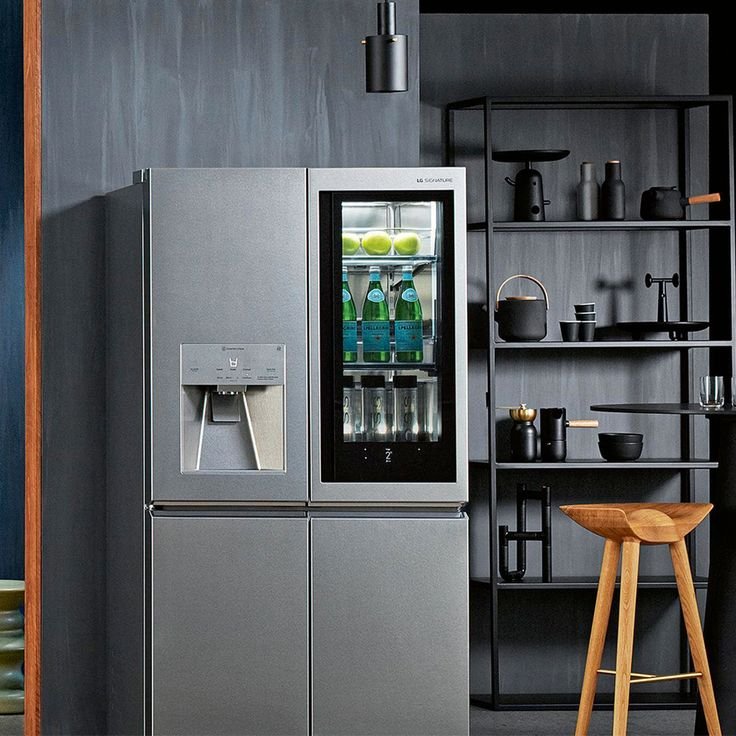
As smart refrigerators evolve, several trends are beginning to shape their design and functionality:
- Voice-Control Integration
Voice-activated control has become a standard feature in many smart home devices, and refrigerators are following suit. With Alexa, Google Assistant, and other voice assistants now compatible with smart fridges, users can interact with their appliance hands-free. This feature is particularly useful in the kitchen, where hands are often occupied. Users can check their grocery list, set timers, and even look up recipes without touching the fridge. - Personalized User Profiles
In multi-person households, some smart refrigerators allow for personalized profiles for each family member. These profiles store preferences for food notifications, personalized shopping lists, and dietary restrictions, catering to individual needs. This level of personalization is especially beneficial for families with different eating habits or dietary requirements. - Integration with Other Smart Kitchen Appliances
The connected kitchen is on the rise, and smart refrigerators are central to this trend. Many models are compatible with other smart appliances, such as ovens and microwaves, enabling synchronized cooking processes. For example, a recipe recommendation might include a preheat command to your smart oven, simplifying cooking coordination. - Advanced Food Preservation Technologies
Smart refrigerators are also incorporating innovative food preservation techniques, such as vacuum-sealing compartments and UV sterilization lights, which can extend the life of fruits, vegetables, and other perishables. This trend toward high-tech food preservation helps ensure that food stays fresher longer, enhancing both convenience and nutrition.
The Future of Smart Refrigerators
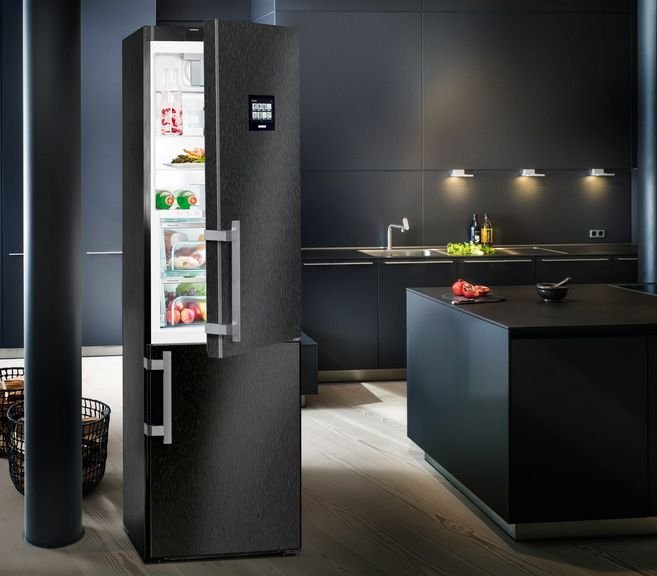
With constant advancements, smart refrigerators are likely to become even more intuitive and efficient over the next few years. Future models may incorporate advanced AI for predictive maintenance, suggesting when it’s time to replace a water filter or alerting users to potential issues before they arise. Other developments may include even deeper integrations with health apps, allowing users to track their dietary intake and nutrition goals directly from their fridge.
As smart kitchen technology continues to grow, it’s clear that smart refrigerators are more than just a high-tech novelty. They’re a powerful tool for improving our daily lives, helping us make healthier choices, reduce waste, and enjoy a more organized, efficient kitchen experience.
Conclusion: A Smarter Way to Eat and Live
Smart refrigerators are no longer just about keeping food cold; they’re about transforming our approach to food, health, and sustainability. With features designed to streamline meal planning, reduce food waste, and enhance energy efficiency, smart refrigerators in 2024 are helping us lead healthier, more sustainable lives. As these appliances continue to evolve, they’re paving the way for a smarter, more connected kitchen that’s in tune with the way we eat and live.

